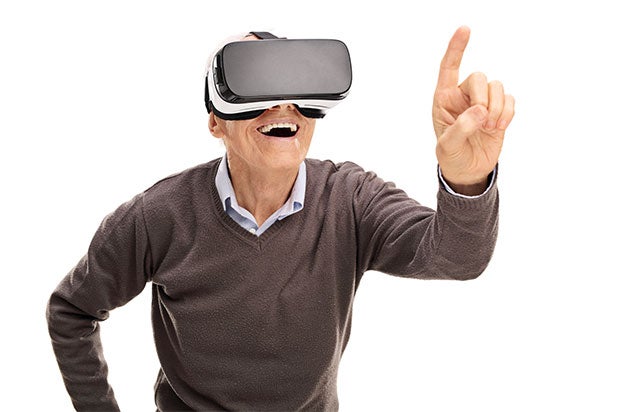Virtual reality
Subject: Virtual reality

As programmers and computer scientists push out the boundary of what a computer can be used for and as the computer therefore becomes more and more an indispensable tool, there also lurks in the background the ability to do more. Doing more has its dangers since it also takes us into competences that push us further away from the reality of who we are. That link in our mortality and the boundaries it imposes is important.
The drug LSD was promoted in the 1960s as an escape route into another world a psychedelic world of vivid experiences not possible to the man or woman going about their ordinary lives. The ordinariness of everyday life had to be emblazoned by new exciting experiences which, much like the use of alcohol was an escape from life's dreary reality. The price to pay was the return journey and the acceptance, in some cases that "hell on earth" had to be faced.
The claim that 'Visual Reality' extends the minds ability to journey further, to see around corners and experience the inexperenced pleasures of a trip into the exciting hallucinatory world of our mind has at its root a deep question. Do we as human beings benefit from the highs gained by escaping our reality. Do we gain from visiting a place so remotely individualistic, since it is our personal journey and no one else's, only to be dragged back when we put our apparatus away.
I was never tempted to take LSD although living in and around the Cross in Sydney one had friends who were always tripping. I never wanted to be out of control although I must admit to being close to it through alcohol on more than one occasion. To me alcohol was a journey without an end result, one went in for one beer and usually only had one or two beers and only occasionally the atmosphere and camaraderie drew one in to having more than was good for you with the inevitable result. The journey was not preordained and occasionally the result was a confusion as to who you were and what was appropriate.
The word appropriate is of course a loaded word, appropriate to who and why. Behind the word lies the assumption for us all to get on and function as a society where there are rules of engagement. There is an assumption that we have to collaborate in some sort of way, that we have to forgo our independence to do what ever we want and remember to behave like animals in a pen. For this we describe ourselves as being civilised.
Virtual Reality is in essence the rejection of civilised behaviour, not in the sense that we become belligerent or necessarily dangerous to others but, I would suggest, we become dangerous to ourselves as we probe further and further into the chemistry which makes up the mind. Without the countervailing force of 'real life' reality which curbs our actions and makes us the social person we are, we exclude everyone and run the danger of becoming narcissistic with all its feelings of exaggerated self importance.

No comments:
Post a Comment